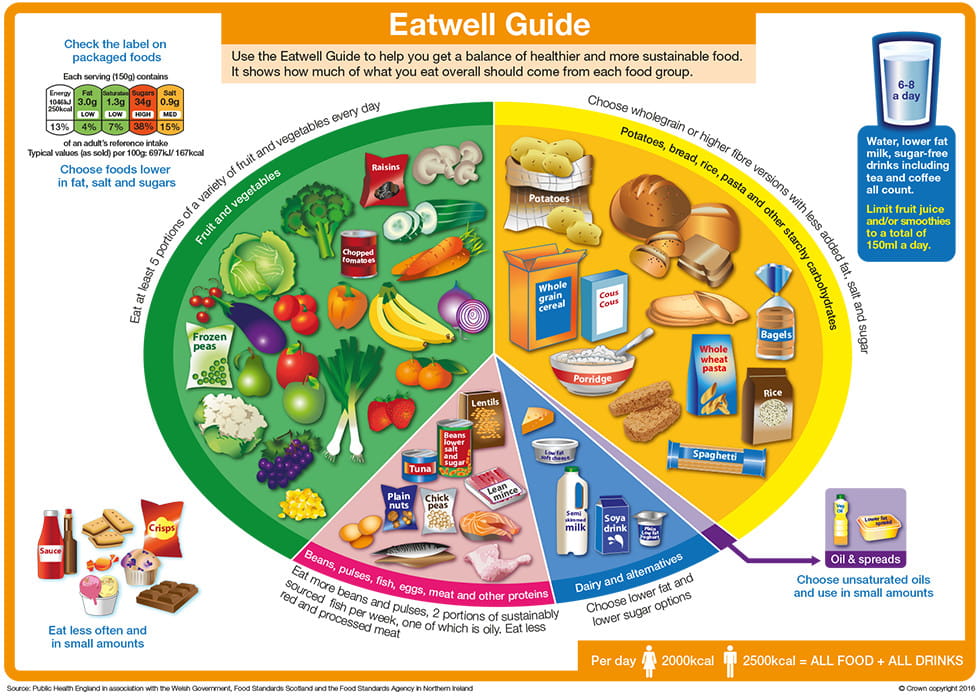To be healthy and to support your training it is important that you eat a balanced diet. The Eatwell Guide shows how much of what you eat should come from each food group. Use this to guide your food and drink choices throughout the day.
Click here for more information on healthy eating.
